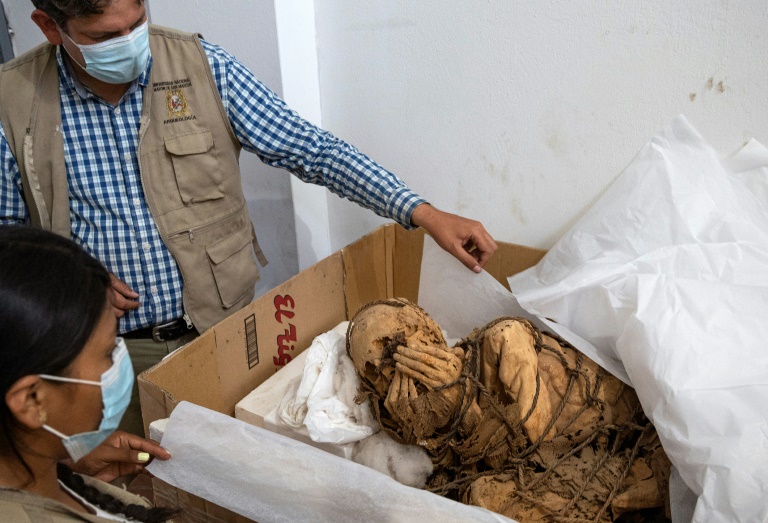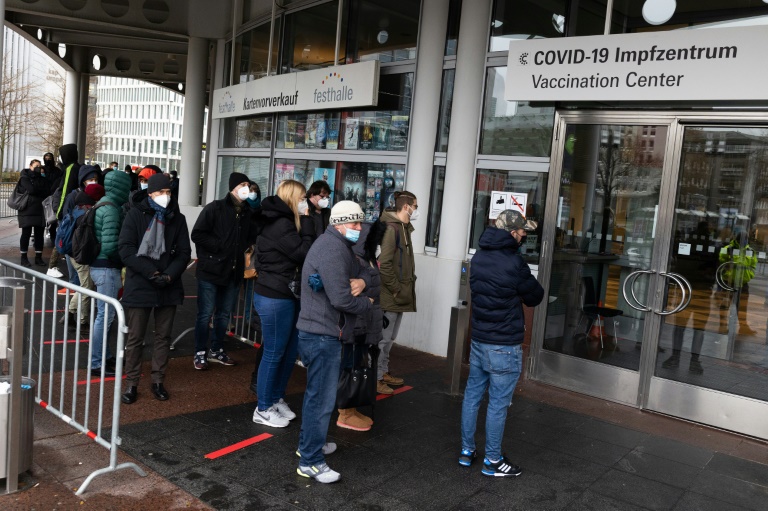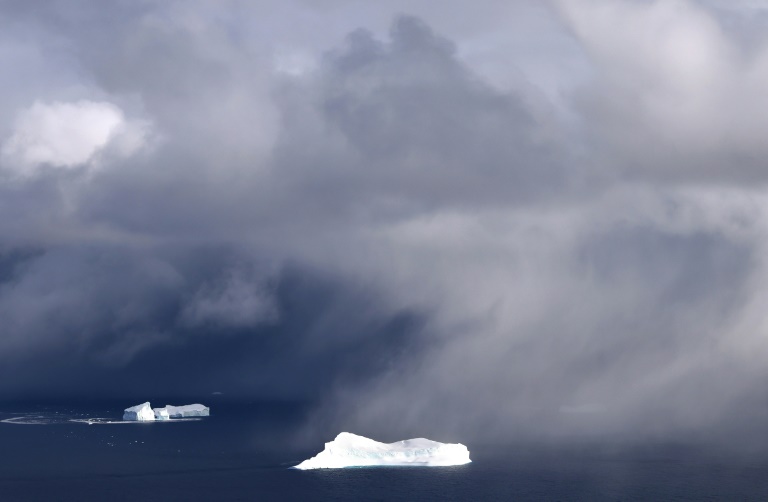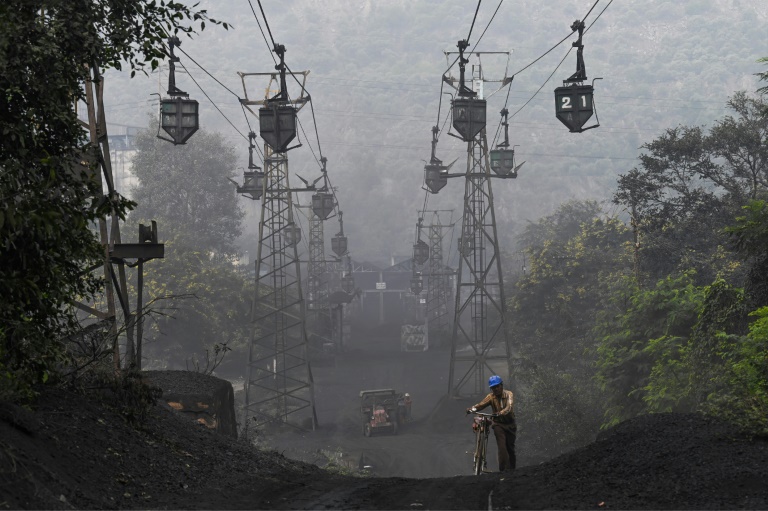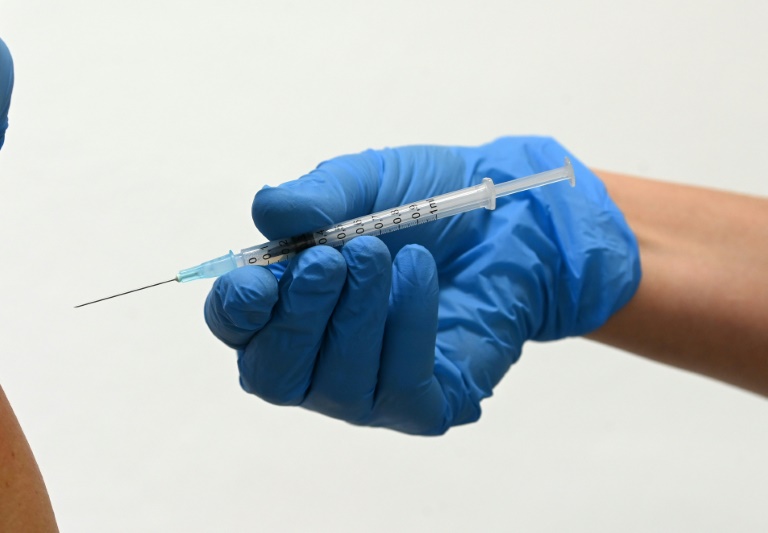Thick grey dust hangs in the air and vast chasms are gouged into the land in the Indian coal hub of Singrauli, where giant machines scoop up dirty fuel to power the country’s growth while worsening its pollution blight.
The open-cast mines of Singrauli epitomise the economic and environmental dilemma faced by the world’s second-most populous nation, which led the opposition to phasing out coal at this month’s COP26 climate summit in Glasgow.
India’s resistance on the issue is driven by its desire to distribute the benefits of development more widely among its 1.3 billion people, some of whom still have no access to electricity.
But it comes at a heavy price.
In Singrauli, home to more than a dozen mines and coal-fired power stations, dark soot covers trees, houses, cars and even cows.
In scenes reminiscent of a dystopian movie, sticky sludge lines the roads, while trucks, trains and ropeway cars carry huge mounds of coal and spill black dust on passers-by.
Residents have little choice but to breathe in the acrid air that stings the eyes and throats.
“Our air, water and in fact the entire environment is heavily polluted. Even the cows look like buffaloes here,” said Sanjay Namdev, a labour union activist, as cranes and dumpers whirred behind him at a sprawling coal yard.
“But forget phasing out, you cannot even phase down coal in a country like India,” he told AFP. “Millions of people depend on coal for cheap electricity and I don’t see that stopping ever.”
– A/C and fridges –
As Asia’s third-biggest economy grows, its hunger for coal is mounting, with aspirational middle classes needing electricity to run their air conditioners and refrigerators.
Coal consumption in India has already doubled in the last decade — only China burns more — and the fuel powers 70 percent of the country’s electricity grid.
With international pressure mounting, Prime Minister Narendra Modi last month announced India would aim to be carbon-neutral only by 2070 — a decade after China and 20 years after the world’s other big emitters.
The government argues that although the country is the world’s third-largest emitter in total, its per capita emissions are far lower than the American average.
Around 30,000 people are employed in the Singrauli mines, with thousands more working as casual labourers, and fear they have no future without coal, even as climate change brings them hotter summers and heavy unseasonal rains.
“You can see how bad the pollution situation is here. I know it is bad for my health but what will I do if the coal mines shut down? How will I feed my children?” said mineworker Vinod Kumar, whose haggard looks belied his 31 years.
Northern Coalfields, a state-run mining firm, owns over 80 percent of the coal assets in Singrauli, producing 130 million tonnes of the fuel annually, and says it is trying to make its operations less polluting.
“We want to make coal dispatch completely eco-friendly,” said company spokesman Ram Vijay Singh. “We also hold free camps every year to screen health problems among the locals.”
But activists say such piecemeal measures serve no real purpose.
“There are some machines and techniques that can cut down the pollution but the companies are not serious about these,” said Namdev.
“There are so many anti-pollution guidelines but these are flouted with impunity. All they are concerned about is making quick profits.”
– Begging for jobs –
Across India, more than 13 million people are employed in coal mining and related sectors, according to Harjeet Singh of the Fossil Fuel Non-proliferation Treaty Initiative, a campaign group.
“An abrupt coal phase-out in India may lead to economic disruption,” he said. “In a country where a large population depends on coal for their income and energy, we must ensure social justice in the shift towards a fossil fuel-free future.”
And for some Singrauli residents, their biggest complaint is that they are not profiting from the environmental carnage around them.
Casual labourer and part-time liquor distiller Uma Devi, 50, lives in a thatched mud house on the edge of a coal mine owned by Reliance, an Indian conglomerate headed by Asia’s richest man Mukesh Ambani.
“We have been begging them to give us jobs for two years but they don’t listen to us,” she said. “They have brought people from outside to work for them.
“Each time blasting happens, it shatters our eardrums. The government is making money off them but we are getting nothing in return except the pollution.”
She cannot afford the 900-rupee ($12) cost of a gas cylinder, so every day she cooks her family’s food on a fire made with scavenged coal.

